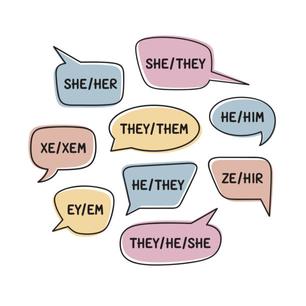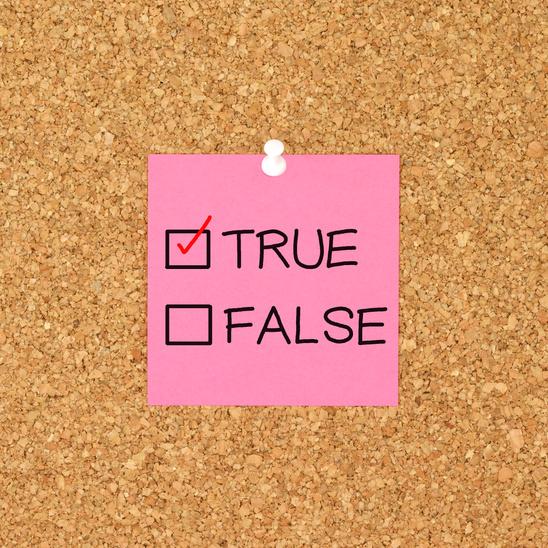Our values
What is a value?
A value is something we think is important in who we are, or how we act towards others. A value many people have is kindness.
A shared value is a value that is agreed upon by more than one person.
At Shared Lives Plus we value being yourself, being true to yourself, and letting others be themselves. We are....
Enthusiastic
Person-centred
Human rights centred
Strengths based
... so that we can .... Celebrate, Protect,
And show the uniqueness of every person
These are the values that underpin how we interact with each other... ...and with the wider community.
These values are what we use to promote Shared Lives... ... and to make sure that equality, diversity and inclusion are practiced at work and across our Shared Lives community.
Our commitments
What is a commitment?
A commitment is a promise or firm decision to do something.
Shared Lives Plus is committed to giving equal opportunities to all employees. This means making sure everyone has the same options.
Our commitments are:
1. Creating an inclusive culture so everyone feels welcomed while working at Shared Lives Plus.
This includes people with “protected characteristics.”
These are defined in the Equality Act 2010 as...
Religious beliefs
Race or ethnicity
Sexual orientation
Biological sex
Gender identity, including gender reassignment.
Disability
Marital or relationship status
Parental status
You can read more about the 2010 Equality act here:
https://assets.publishing.service.gov.uk/media/5a798cf6ed915d042206950e/easyread pdf
There is also an easy read guide to sex and gender and sexual reassignment here:
https://www.choicesupport.org.uk/uploads/documents/Transgender-easyread-guide-For-Web.pdf
https://dimensions-uk.org/wp-content/uploads/Someone-in-my-team-istransgender-easy-read.pdf
2. We are committed to creating a work place where everyone is treated with dignity and respect. Where everyone is free from harassment and bullying.
Dignity is where everyone is treated with respect and made to feel like they are being treated fairly and as a human being.
Respect is caring about other people and their wishes, rights and feelings.
3. Shared Lives Plus is committed to stopping all forms of “unlawful discrimination”. This includes:
Making sure pay and benefits are fair.
Providing terms and conditions of employment. These are the rules you sign when you agree to work with shared lives.
Dealing
with grievances.
A grievance is where you feel there has been an unfair action, and make an official complaint.
Disciplining employees. A disciplinary is an action Shared Lives Plus can take if an employee is not following the values and commitments.
Dismissing employees. Dismissal is when an employee is ordered or asked to leave working at Shared Lives Plus.
Being fair about redundancy. Redundancy when you are asked to leave because your job is no longer needed.
Offering parental leave. This is when soon to be, or new parents, have time off with their child.
Offering dependent leave. This is when you take time off to support someone who depends on you. This could be a child, partner, parent, relative or friend.
Providing flexible working. This means allowing home working, and being open to changing work days and hours.
Providing promotion, training, and development opportunities.
Promoting equal opportunities
At Shared Lives Plus we encourage diversity and inclusion.
We do this because it means we have lots of different people who have lots of different life experiences.
This adds different skills, ideas, perspectives, and values...
...which only improves our work place, and the work we do.
Accessibility and reasonable adjustments
Shared Lives Plus is committed to ensuring our workspace and shared living community are accessible to all, and to make reasonable adjustments.
A reasonable adjustment could be making sure a place has wheelchair access, and not asking people to work on a religious holiday.
Here is an easy read guide to reasonable adjustments and what they are and what counts as reasonable: https://www.sra.org.uk/globalassets/document s/sra/equality-diversity/easy-read-reasonableadjustments.pdf?version=4a1acf
How do we plan to make this part of every working day and the shared living community?
By having conversations around equality, diversity and inclusion.
By offering training on equality, diversity and inclusion.
Being aware of the words we use, and making sure they are respectful to people...
.. such as using someone’s preferred pronouns (he/she/they)..
.. and saying ‘autistic’, rather than saying a ‘person with autism’.
And by creating a space where people feel safe to share ideas... ... a place where people can challenge themselves and others.
... and a place to hold themselves and other people accountable.
Being accountable means being responsible for our actions, such as saying sorry if we upset someone.
What is racism?
Racism is when people are treated unfairly or discriminated against because of their skin color or background.
What is anti-racism?
Anti-racism is when you actively work to stop racism, not just where you say you are against racism.
What is discrimination?
Discrimination is when a person is treated unfairly because of their sex, religion, nationality, ethnicity (culture), race, or other personal traits.
Here are some more easy reads explaining racism and anti-racism: https://www.ambitiousaboutautism.org.uk/sites /default/files/resources-anddownloads/files/racism-explained-easy-read.pdf https://www.gov.scot/publications/anti-racistemployment-strategy-easy-read-version/
How can we be anti-racist at Shared Lives Plus?
At Shared Lives Plus we will no longer use the term ‘BAME’Black, Asian and Minority Ethnic. This word does not give enough detail about individual groups.
We want to be true allies to black and minoritised ethnic groups. An ally is a friend who helps someone when they are struggling.
Here is a link to an easy-read document explaining what an ally is: https://changingourlives.org/wpcontent/uploads/2022/09/What-is-an-allyreduced.pdf
Here are some YouTube videos explaining racism and anti-racism: What is anti-racism?
https://www.youtube.com/watch?v=gzPiMihra-s What is racism? https://www.youtube.com/watch? v= VgC3GpmWW0
Disability and neurodiversity
We welcome and encourage disabled and neurodiverse people to work at Shared Lives Plus.
Disability happens when a person with a health condition, (such as Down’s Syndrome, cerebral palsy or depression) runs into physical or social barriers. For example, a physical barrier can be steps or stairs for a person using a wheelchair. A social barrier can be a person making assumptions about someone’s disability or patronising them.
Neurodiversity means the differences in how people's brains process information. For example, if you are autistic, or have ADHD or learning disabilities.
If you are disabled or become disabled or are neurodivergent (such as autistic, ADHD etc) we would like you to tell us so we can make sure you are supported.
Here is an easy read guide to reasonable adjustments in case you need it:
https://www.sra.org.uk/globalassets/documents /sra/equality-diversity/easy-read-reasonableadjustments.pdf?version=4a1acf
LGBTQIA+
LGBTQIA+ is a term often used to describe lesbian, gay, bisexual, transgender people, queer people, people questioning their sexual and/or gender identity, intersex people, and those who are asexual, aromantic, and/or agender.
Lesbians are women who are sexually and/or romantically attracted to other women.
Here is an easy read visual story about being a lesbian:
https://www.ambitiousaboutautism.org.uk/sites/d efault/files/resources-and-downloads/files/beinga-lesbian-visual-story.pdf
Gay men are men who are sexually and/or romantically attracted to other men.
Here is an easy read visual story about being gay:
https://www.ambitiousaboutautism.org.uk/sites /default/files/resources-anddownloads/files/being-a-lesbian-visual-story.pdf
Being bisexual means you are attracted to more than one gender.
Here is an easy read visual story about being bisexual:
https://www.ambitiousaboutautism.org.uk/sites/def ault/files/resources-and-downloads/files/beingbisexual-visual-story.pdf
Transgender is when someone feels their gender is different from the sex they were registered at birth. Here is an easy read visual story explaining being transgender: https://www.ambitiousaboutautism.org.uk/sites/defa ult/files/resources-and-downloads/files/beingtransgender-visual-story.pdf
Queer means you do not identify with typical gender or sexual norms such as ‘being straight.’ Queer used to be an insult, but the LGBTQIA+ community have taken the term back, and it is now OK to use.
Questioning: People who are questioning are exploring and trying to find out if they are part of the LGBTQIA+ community.
Intersex: people who are intersex do not have the typical biological or physical characteristics or a male or female body.
Here is an easy read website explaining being intersex:
https://oursite-easyread.wwda.org.au/sex-andyour-body/intersex-variations/what-is-intersex/
Asexual people do not have sexual feelings or desires towards others.
However some asexual people still want romantic relationships. Some asexual people are also aromantic.
Aromantic is where a person does not feel romantic attraction towards people. Some people who don’t want romantic relationships might still want sexual relationships.
Agender is where someone does not align with any gender. Some people who are agender identify as non-binary and others don’t.
Here is an easy read guide to LGBTQ+ https://suffolkordinarylives.co.uk/wpcontent/uploads/2021/10/LGBTQ-bookletSCREEN-READER-18-05-20.pdf
Shared Lives Plus is committed to ensuring our workspace and shared living community are accessible to all, and to make reasonable adjustments.
If we are unsure about someone’s gender, or their pronouns, we can ask each other.
We encourage everyone who works at Shared Lives Plus to add their preferred pronouns in their email signature, online labels, and during introductions.
Here is an example of an email signature showing someone’s pronouns.
Here are examples of some pronouns that people use.
Shared Lives Plus staff should also actively consider the safety of LGBTQIA+ attendees when planning an in-person event...
...such as making sure trans or non-binary attendees have access to a bathroom that they feel comfortable with.
If you as a Shared Lives Ambassador feel upset or uncomfortable you need to speak to Sophie Hargreaves who works in Strategic advice and works closely with ambassadors.
All staff at Shared Lives Plus should be treated the same regardless of how many hours they work or how long they will be working at Shared Lives Plus.
The law and discrimination
Here is an easy read guide to the law and discrimination:
https://www.equalityhumanrights.com/sites/d efault/files/equality act employment easyrea d.pdf
Employee responsibilities
Everyone who works at Shared Lives Plus is responsible for making sure we understand and tackle discrimination. This includes:
Reporting any concerns you have about how you or others are being treated
Attending and possibly delivering training.
Respecting everyone’s difference, including different opinions.
It is important to remember that discriminating against someone else is against the law.
What happens if you have been treated unfairly?
If you feel you have been discriminated against or treated unfairly, you can make an informal complaint.
If you then want to make a formal complaint, this is called ‘raising a grievance’. This will start a process called a ‘grievance procedure’.
Flow chart for complaints:
If you feel that you have been treated unfairly, firstly go to Sophie Hargreaves.
Sophie will discuss this with a manager, and they will talk to the person involved.
If Shared Lives Plus thinks this is serious, they will ask you to write down your experience and feelings.
Shared Lives Plus will then ask someone outside the organisation what action to take next.
If you don’t feel you are being listened to, you can also contact Steph Cryer, our HR Officer.
If you feel that someone else has been treated unfairly, you can also go to Sophie.
When someone is accused of treating other people unfairly, it will be investigated fairly:
If it is found NOT to be true, then the person who has been accused will not be in trouble.
If it is found IT IS true, then Shared Lives Plus will decide how to handle this.
If this behaviour continues the person will asked to leave Shared Lives Plus.















































